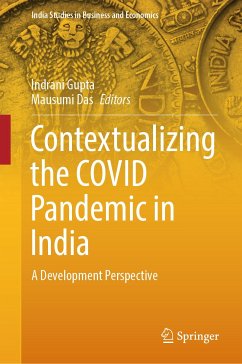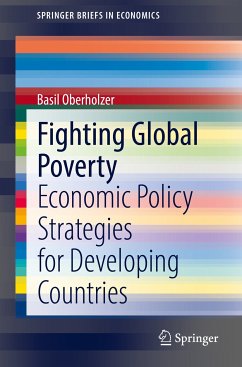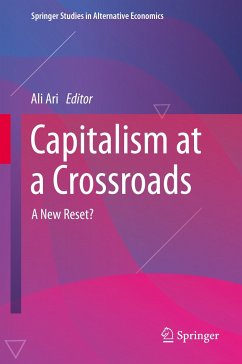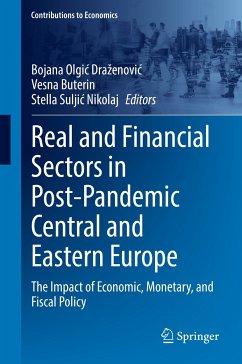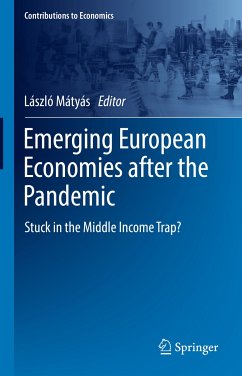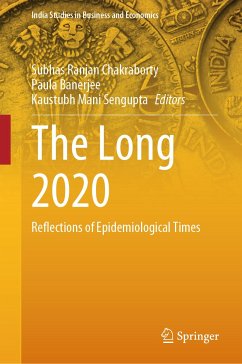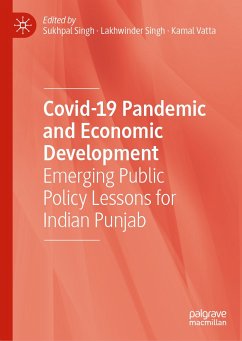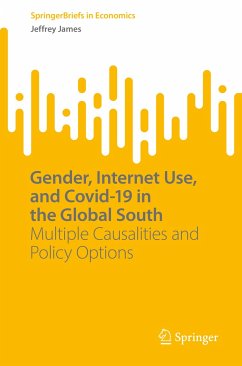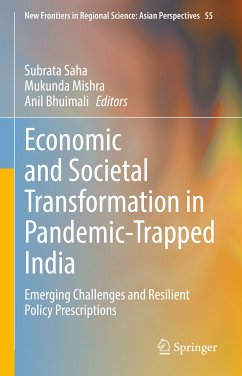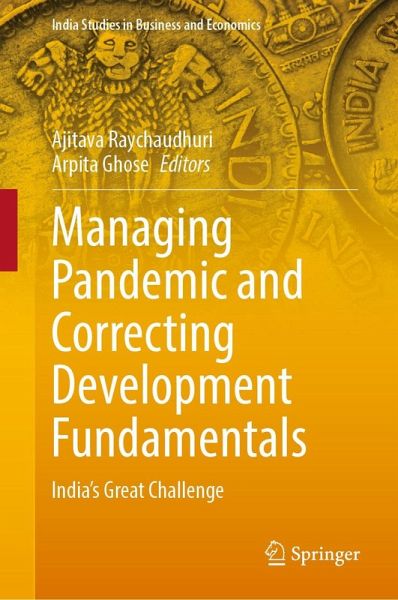
Managing Pandemic and Correcting Development Fundamentals (eBook, PDF)
India's Great Challenge
Redaktion: Raychaudhuri, Ajitava; Ghose, Arpita

PAYBACK Punkte
60 °P sammeln!
This book discusses the extent and nature of COVID-19 pandemic in India and its effect on the society and economy. The suggested management practices discussed here are also not stereotype. At the same time, it highlights deficiency in development fundamentals in India on several dimensions, especially health, education, quality of public spending, taxation orientation, external trade involvement across states, etc., deficiencies which create an inbuilt bottleneck toward the creation of a more equal society. While discussing these, the book throws light on how they were expectedly exacerbated ...
This book discusses the extent and nature of COVID-19 pandemic in India and its effect on the society and economy. The suggested management practices discussed here are also not stereotype. At the same time, it highlights deficiency in development fundamentals in India on several dimensions, especially health, education, quality of public spending, taxation orientation, external trade involvement across states, etc., deficiencies which create an inbuilt bottleneck toward the creation of a more equal society. While discussing these, the book throws light on how they were expectedly exacerbated by the sudden negative shock in the form of COVID-19 pandemic. Thus, the book has highlighted the COVID pandemic and its response in India in the background of certain less discussed aspects of development fundamentals.
The contents would be of interest to researchers and students studying socioeconomic aspect of developmental economics and also to policy makers and non-government entities involved in mitigating effects of pandemic in the socioeconomic sphere.
The contents would be of interest to researchers and students studying socioeconomic aspect of developmental economics and also to policy makers and non-government entities involved in mitigating effects of pandemic in the socioeconomic sphere.
Dieser Download kann aus rechtlichen Gründen nur mit Rechnungsadresse in A, B, BG, CY, CZ, D, DK, EW, E, FIN, F, GR, HR, H, IRL, I, LT, L, LR, M, NL, PL, P, R, S, SLO, SK ausgeliefert werden.



